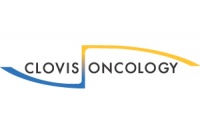Clovis Oncology's (CLVS) Rubraca Significantly Improves PFS versus Chemotherapy in Patients with Later-line Ovarian Cancer Associated with a BRCA Mutation

Get Alerts CLVS Hot Sheet
Join SI Premium – FREE
(Updated - March 19, 2021 8:06 AM EDT)
Clovis Oncology, Inc. (NASDAQ: CLVS) announced that the first presentation of data from the randomized, Phase 3 ARIEL4 study of Rubraca® (rucaparib) will take place today in an oral presentation at the Society of Gynecologic Oncology Virtual Annual Meeting on Women’s Cancer (SGO). The data demonstrate that Rubraca significantly improves PFS compared to standard-of-care chemotherapy, including platinum-based chemotherapy, among patients with advanced, relapsed ovarian cancer and a deleterious BRCA mutation who have received two or more prior lines of chemotherapy.
“Data from the ARIEL4 study meaningfully enhance our understanding about the role of Rubraca among women with BRCA mutation-positive relapsed ovarian cancer, as well as the clinical relevance of BRCA reversion mutations,” said Dr. Rebecca Kristeleit, Co-Coordinating Investigator of ARIEL4 and Consultant Medical Oncologist, Guy’s and St Thomas’ NHS Foundation Trust, London, UK. “This is important because women with more advanced disease have fewer treatment options, and it is increasingly important to understand how specific mutations affect treatment outcomes.”
Dr. Kristeleit will present “Rucaparib versus chemotherapy in patients with advanced, relapsed ovarian cancer and a deleterious BRCA mutation: efficacy and safety from ARIEL4, a randomized phase 3 study” today during the SGO Scientific Plenary I: Innovation and Progress in Gynecologic Oncology session from 2:35 pm - 3:45 pm CT. The presentation can also be viewed at https://www.clovisoncology.com/pipeline/scientific-presentations/ starting today at 2:35 pm CT.
The ARIEL4 study (NCT02855944) is a Phase 3 multicenter, randomized study evaluating Rubraca versus chemotherapy in fully platinum-sensitive, partially platinum-sensitive and platinum-resistant patients with relapsed ovarian cancer and a BRCA mutation (inclusive of germline and/or somatic) who have received two or more prior lines of chemotherapy. The primary endpoint of the study is investigator-assessed PFS, with a step-down analysis from the primary efficacy population (if significant) to the intent-to-treat (ITT) population.
The study enrolled 349 women in Europe, Israel and North and South America. The primary efficacy population (n=325) comprised the group of patients with a deleterious tumor BRCA mutation and excluded those with a BRCA reversion mutation as determined by a blood test. The rucaparib arm in this population (n=220) achieved statistical significance over the chemotherapy arm (n=105) for the primary endpoint of PFS with a hazard ratio of 0.64 (p=0.001). The median PFS for the patients in the efficacy population treated with rucaparib was 7.4 months versus 5.7 months among those who received chemotherapy.
Additionally, in the ITT population (n=349), the rucaparib arm (n=233) achieved statistical significance over the chemotherapy arm (n=116) for the primary endpoint of PFS with a hazard ratio of 0.67 (p=0.002). The median PFS for the patients in the ITT population treated with rucaparib was 7.4 months versus 5.7 months among those who received chemotherapy.
Adverse events were consistent with the known safety profiles of Rubraca and chemotherapy. The most common (>5%) treatment-emergent ≥grade 3 adverse events (TEAEs) among all patients treated with rucaparib (n=232) in the ARIEL4 study were anemia/decreased hemoglobin (22%), neutropenia/decreased absolute neutrophil count (10%), asthenia/fatigue (8%), thrombocytopenia/decreased platelets (8%), and increased ALT/AST (8%).
“The ARIEL4 data add to the growing scientific understanding about the clinical utilization of Rubraca compared to chemotherapy, including platinum-based chemotherapy, for women diagnosed with BRCA mutation-positive advanced ovarian cancer,” said Patrick J. Mahaffy, President and CEO of Clovis Oncology. “We remain committed to expanding treatment options for patients living with cancer and are pleased to share these data with physicians and their patients to help improve outcomes for women with ovarian cancer.”
According to the American Cancer Society, an estimated more than 21,000 women will be diagnosed with ovarian cancer in the United States and there will be an estimated nearly 14,000 deaths from ovarian cancer in 2021, and according to GLOBOCAN in 2020, an estimated 66,000 women in Europe are diagnosed each year with ovarian cancer, and ovarian cancer is among those cancers with the highest rate of deaths. According to the American Cancer Society, more than 75% of women are diagnosed with ovarian cancer at an advanced stage, and patients who are diagnosed with advanced ovarian cancer have a 70-95% chance of recurrence according to the Ovarian Cancer Research Alliance.
Serious News for Serious Traders! Try StreetInsider.com Premium Free!
You May Also Be Interested In
- AstraZeneca (AZN) Announces Voydeya Approval in EU as add-on to ravulizumab or eculizumab
- Edgewise Therapeutics Inc. (EWTX) Granted EU Orphan Drug Designations for Sevasemten
- Independent Bank (IBCP) Appoints Stephen L. Gulis, Jr. as Board Chair
Create E-mail Alert Related Categories
Corporate News, FDA, Hot Corp. News, Hot FDA News, Management CommentsRelated Entities
FDASign up for StreetInsider Free!
Receive full access to all new and archived articles, unlimited portfolio tracking, e-mail alerts, custom newswires and RSS feeds - and more!



 Tweet
Tweet Share
Share